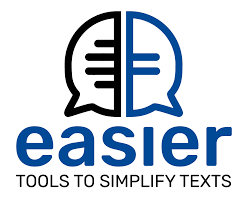Cognitive Accessibility [NLP, AI & HCI]
Research and development of Natural Language Processing (NLP) and Artificial Intelligence (AI) technologies for text simplification, with the goal of making textual content more comprehensible systematically and automatically. Our expertise is particularly highlighted in working with people with cognitive limitations, such as individuals with intellectual disabilities and the elderly, among others. We began our work using more traditional NLP methods, evolving towards the use of transformers and, finally, to Large Language Models (LLMs) that we apply today. This technological progress has allowed us to explore and enhance text simplification through methods, languages, and specialized linguistic resources.
We address different simplification approaches depending on the target audience, having notable expertise in simplification following two similar but different initiatives, such as Plain Language and Easy to Read guidelines. Our work also includes the creation of corpora within the framework of Plain Language and Easy Read, adapting solutions to various domains such as public administrations, education, and health.
Furthermore, we research technologies to support professionals in adapting texts to Easy Read and Plain Language, offering tools for complex word detection, readability evaluation, and summary generation, among other functionalities.
An essential aspect of our research is the constant validation with individuals and the target audience of the work done using Human-Computer Interaction (HCI) methods, ensuring that our solutions are not only technologically advanced but also effectively helpful and accessible to those for whom they are intended.
Highlighted Projects:
- EASIER
- Cognitive and Sensory Accessibility in Video Conferencing Systems (Access2Meet)

